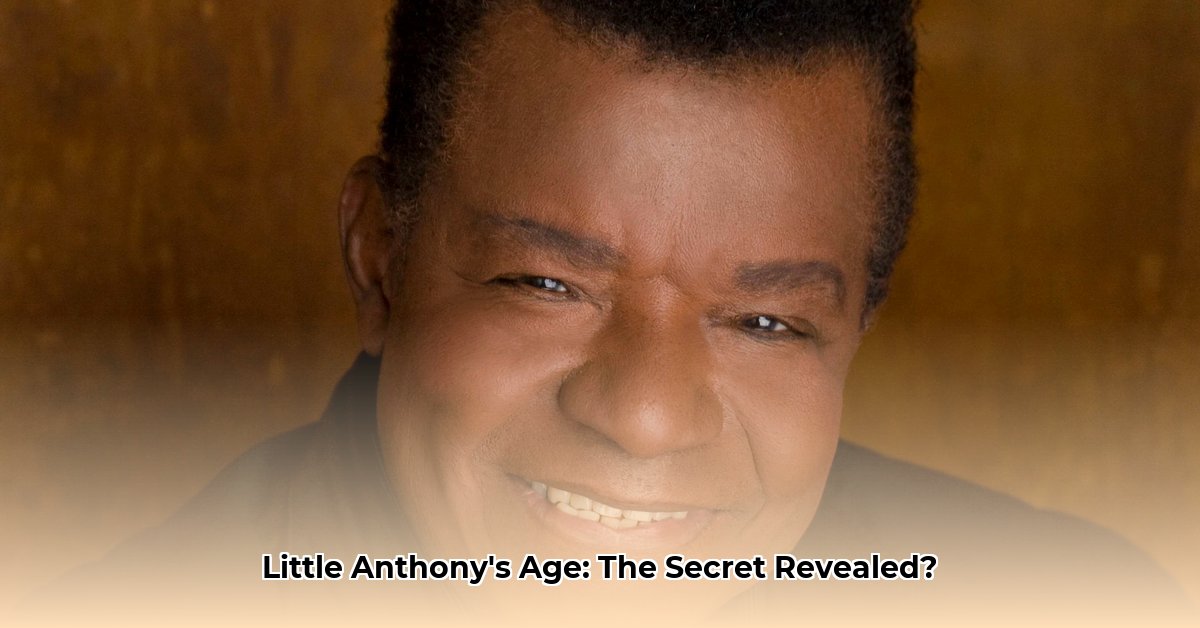
Little Anthony Gourdine's birthdate, January 1941, offers a numerical starting point, but the true measure of his life lies in the rich tapestry of his music with The Imperials. This isn't just about a number; it's about a musical journey that profoundly shaped a generation. This article explores the enduring legacy of Little Anthony and The Imperials, showcasing their evolution from doo-wop sensations to socially conscious artists, and the lasting impact they’ve had on music and culture. For a look at another musical icon's net worth, see Johnny Mathis's net worth.
From Brooklyn Streets to Singing Sensations: The Imperials' Rise
Imagine Brooklyn in the 1950s, a vibrant crucible of burgeoning musical styles. Little Anthony, alongside Ernest Wright, Clarence Collins, and Sammy Strain – The Imperials – emerged from this scene, not merely singing, but weaving sonic magic with their buttery-smooth harmonies. Their 1958 debut, "Tears on My Pillow," wasn't just a hit; it was a cultural touchstone, capturing the universal ache of youthful heartbreak with a simplicity that resonated deeply. How many songs encapsulate the bittersweet pangs of first love so effectively? Their early success laid the foundation for a career that would span decades and genres.
More Than Just a Sound: Adapting to a Changing World
The Imperials' longevity wasn’t due to clinging to a single formula. They were musical chameleons, seamlessly adapting to evolving tastes, transitioning from the romantic melancholy of doo-wop to the soul-infused grooves of later tracks. Their transformation from the tender heartache of “Tears on My Pillow” to the vibrant energy of their later work, reminiscent of Sly & the Family Stone’s innovative sound demonstrated their incredible versatility and willingness to evolve. This adaptability not only extended their career but also solidified their place in music history. Did this adaptability come naturally, or was it a conscious decision to remain relevant?
A Voice for the Times: "Father, Father" and Social Commentary
The release of "Father, Father," during a period of intense social unrest, marked a pivotal moment. This wasn't merely a song; it was a powerful statement. The poignant lyrics, questioning the senselessness of conflict ("Oh Lord, why must we fight and die?") resonated deeply with audiences grappling with social inequality and unrest. The gospel influences amplified the song's emotional weight, rendering it a powerful anthem for a generation burdened by societal divisions. How did this socially conscious anthem resonate with audiences during such a turbulent time? Its impact can be measured against songs like Marvin Gaye's "What's Going On," highlighting a shared concern for social justice within the music world.
The Ups and Downs: Navigating a Long and Varied Career
The Imperials' journey wasn't without its trials. Lineup changes, a near-collapse of their record label, Avco Records, and the challenges of balancing group work with solo projects tested their resolve. But through it all, their commitment to their music and each other shone through. Their enduring success is a testament to their resilience, showcasing the power of perseverance and the enduring quality of their artistry. What made their bond so strong and how did this resilience influence their iconic sound?
A Legacy of Harmony and Enduring Influence
Little Anthony's estimated net worth of $7 million reflects their lasting appeal, but their true wealth lies in the enduring legacy they've left on generations of music lovers. This isn't just about commercial success, it's about musical influence, social commentary, and the timeless magic of their close harmonies. Their story is a testament to the power of adaptation, collaboration, and the enduring legacy of truly great music. Their impact continues to resonate, highlighting the enduring appeal of their unique sound and the importance of their social commentary.
Key Takeaways:
- The Imperials' masterful blend of doo-wop, soul, and R&B cemented their unique position in music history.
- Their evolution mirrored broader societal shifts, showcasing their ability to adapt and innovate.
- "Father, Father" exemplifies their capacity to create powerful social commentary through music.